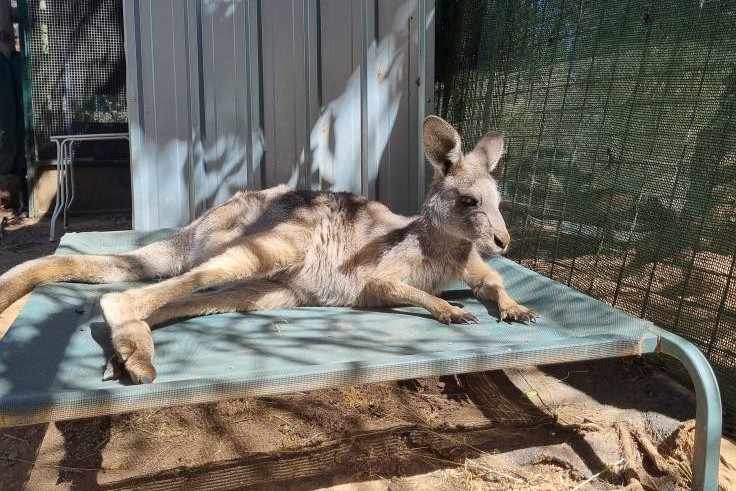General News
31 January, 2025
Increasing challenges for wildlife group
Central Goldfields Wildlife Rescue (CGWR) is faced with challenges surrounding animal feed and water as this summer proves costly.

Following recent dry weather this summer, Central Goldfields Wildlife Rescue (CGWR) is facing challenges in meeting the demand in animal feed.
CGWR’s India Armstrong said the organisation is unable to meet the individual needs of specific species.
“We currently have kangaroos and wallabies in care who require very specific formula that we have to order in from New South Wales and supplement their feed in care with native grass hay which we get direct from farms,” she said.
This has required them to order in more hay.
They also fear that with warm and dry weather continuing, they will be ordering additional water.
“We have no feed in our paddocks, meaning we are having to source more feed then usual to continue supplementing the animals in care who are used to grazing,” Ms Armstrong said.
“This includes the local wild mobs who would usually find sufficient feed, but due to lack of food and water in the bush and paddocks, they are travelling further to find feed to meet their needs.”
She said this summer is proving more costly than previous years.
For nutrient specialty feed, water and hay, the overall cost for an order is expected to be $1800.
“Though our costs of running the shelter are already a big financial commitment, the lack of grass in the paddocks as well as water available, we are having to fundraise to help ease the financial burden,” she said.
Ms Armstrong also said insufficient food has lead to other issues for wildlife such as roadside grazing.
“We are seeing an increase of kangaroos and wallabies hit by vehicles. The paddocks are so dry, the bush is dry and often the side of the road still has ungrazed grasses available. We are seeing them more, as they venture out further to find food and water,” she said.
These conditions have also had a wider impact on other local wildlife.
“We have also seen more birds, lizards and possums seeking gardens with food and water supply which is increasing the number of calls for these species having run ins with domestic pets as they enter yards that may not be safe,” Ms Armstrong said.
With heatwave conditions expected to continue starting this weekend, she said the community can prevent wildlife starvation or heat stress.
“It is great if people can place shallow dishes of water for animals to drink, and by placing sticks and rocks in these dishes, it ensures our smaller native friends don’t find themselves stuck after seeking water or a nice place to cool down,” Ms Armstrong said.
She said that heat stressed and injured wildlife can be reported to CGWR on 0499 654 950 or 5463-2585 and it is best to monitor from a safe distance.